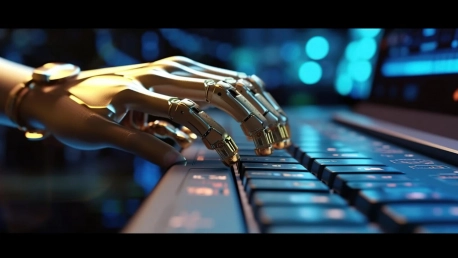The integration of Artificial Intelligence (AI) and Intelligent Automation (IA) is revolutionizing the business landscape. Insights from the eighth annual AIIA conference, featuring insights from heavyweights like Microsoft and VistaPrint, highlighted the expanding role of AI and IA in modern business. Key themes included aligning AI technology with business strategy, managing cultural transformations, and the extensive changes AI is driving in business operations. Experts delved into how these technologies are not just tools but game-changers, reshaping how companies operate at every level, requiring strategic foresight and a thoughtful approach to changing corporate cultures. As AI continues to advance, its strategic, cultural, and operational impacts on businesses are becoming more profound.
Strategic Considerations for AI Adoption
When a business stands at the crossroads of AI adoption, the imperative to craft and adhere to a strategic blueprint is paramount. Microsoft’s Sonika Kapil cautions against the lure of tech for tech’s sake and underscores the necessity to tether AI and IA deployments to explicit business utilities. This correlation between technology and tangible business value is a lodestone in navigating the labyrinth of potential AI solutions. Striking a balance between investing in the new wave of AI applications and leveraging extant in-house expertise, all the while keeping a vigilant eye on fiscal restraints, companies must craft an intricate dance of strategic foresight and practical implementation.The strategy unfurls further as businesses juggle the dicey proposition of custom development versus off-the-shelf AI acquisitions. The market offers a smorgasbord of pre-made AI wonders, but the allure may falter against the sandpaper realities of customization and integration. At this juncture, businesses are impelled to a meticulous evaluation, ensuring that the AI solutions synchronously step with their corporate march.
Cultural Dynamics in Automation and Transformation
VistaPrint’s Dr. Jannik Podlesny illuminates the often undervalued cultural dimension of AI adoption. Beyond the machinery of technology lies the human terrain—fertile for either flourishing acceptance or stubborn resistance. Efforts to embed AI and IA into the organizational fabric may unravel unless the spool of employee engagement is spun with care. A forward charge in automation necessitates a firm handshake with change management, ensuring that the human elements of trepidation and resistance are assuaged and transformed into active participation.It’s a cultural metamorphosis that demands more than a mere managerial decree; instead, it requires nurturing a groundswell of acceptance, spurred by education and empowerment. Encouraging a synergetic shift toward the symbiosis of man and machine, organizational leaders are tasked with scripting a narrative where automation is not an existential threat but an evolutionary step – an ally in the human quest for efficiency and innovation.
The Role of Generative AI in Business Processes
Delving into the enigmatic realm of generative AI, Novomatic AG’s Dr. Bogdan Pirvu delineates the technology’s nuanced impact on business ontologies. Rather than casting existing frameworks into obsolescence, generative AI refines the cogs of these processes, enhancing efficacy and curtailing costs. It isn’t a tumultuous overthrow but a cerebral evolution, enabling enterprises to cling to the bedrock of their operations while reshaping the modality of result delivery.Augmentation and disruption hereby emerge not as conflicting forces but as complementary conduits in the generative AI narrative. Enterprises can harness this adaptive technology to recalibrate the output mechanisms, enriching the fabric of their operations with newfound acumen without upheaving foundational processes.
Automation’s Impact on Customer Service
Converging on the domain of customer service, the prognosis by Kapil and Pirvu is stark: the primacy of human touch in first-level support is waning in the face of generative AI’s ascendancy. Emblematic of this shift, the case of Klarna and its departure from human-run email systems to AI stewardship maps the trajectory for service-centric industries. Here, generative AI exhibits its prowess, tackling rudimentary queries with alacrity and precision, paving the way for customer service operations reimagined and reengineered under the aegis of automation.This transformation, powered by generative AI, does not signify the erosion of quality interaction but the redirection of human capital to complexities beyond the purview of programmed responses. In this reinvention, businesses may discern not a threat but an opportunity to refine their customer engagement models.
Adapting to the Dynamic Business Environment
Cristina Duta of AECOM accentuates the limitations that traditional automation encounters within the perpetually shifting sands of contemporary business landscapes. A cadre of evolving customer expectations, regulatory maelstroms, and data dynamics demands an automation ethos that transcends the static, embracing the fluidity and adapting with resilience. Generative AI, equipped with its adaptive learning capacities, casts traditional perspectives aside and leaps toward dynamic adaptability—an indispensable ally in the relentless pursuit of optimization.Herein, the progeny of IA emerge as chameleons, equipped for the perennial flux, seeking not just to respond but to predictively shape interactions with unparalleled contextual cognizance. It is this leap from repetition to intellectual dexterity that could sanctify enterprises in the hallowed halls of perpetual relevance.
The Transformational Potential of AI and IA in Business
The consensus crystallizing across expert dialogues heralds the redefinition of operational excellence and nimbleness via AI and IA. This transformation, though steeped in technological prowess, is equally about the strategic and humanistic alignment. Positioning AI and IA within the tapestry of enterprise philosophy involves a keen sensitivity to the workspace culture and harmonizing the innate capabilities of both artificial and human intelligence.As the landscape unfolds, businesses perched on the cusp of this revolution face not just the challenge of integration but the broader canvas of reimagining their ecosystems. The marriage of AI strategy and cultural recalibration presages a vista of business transformation where processes are not merely accelerated but fundamentally re-envisioned.









